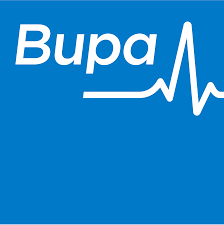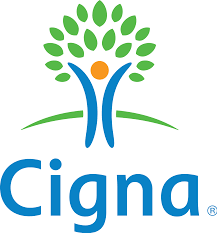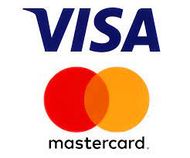COUNSELLING FOR ALL
CHRISTINA RAEBURN

COGNITIVE BEHAVIOURAL PSYCHOTHERAPY AND COUNSELLING FOR ADULTS AND CHILDREN.
Specialities
Children

Children aged 8 + can be seen.
Adults

- Both Individuals and couples can be seen.
- All appointments last between 30 -50 minutes (longer appointments can be requested).
- Appointments require 48 hours notice in the event of cancellation *.
- Insurance - AXA PPP, Cigna **, Nuffield Health, Aviva, Bupa
Specialities
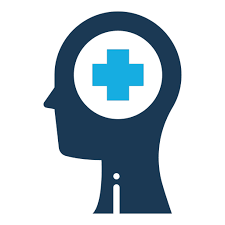
The main objective of this therapy service is to help individuals identify current difficulties and equip them with strategies to help them cope in the future. A wide range of problems can be treated through counselling and
cognitive - behavioural psychotherapy (CBT) including:
- Anxiety
- Bereavement
- Depression
- Addiction
- Rape and Sexual Assault
- Stress
- Phobias
- Posttraumatic Stress Disorder (PTSD)
- Obsessive - Compulsive Disorder (OCD)
- Relationship problems
- Eating Disorders
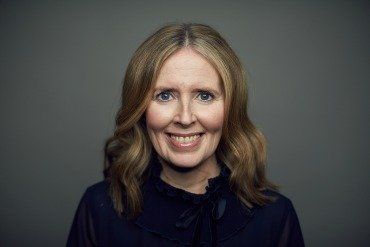
Christina Raeburn
Christina has been involved in the world of Counselling and Psychology since 1994. She originally began in the Voluntary sector working with woman whose lives had been affected by alcohol addiction and rape/sexual assault.
Her own private practice 'Counselling For All' was established in 1997 and from 2000 this was based from GP-Plus in Edinburgh and Glasgow. In September 2013 Christina relocated her practice to The Edinburgh Clinic and YourGP (Medicalternative). Since July 2018 Christina was based solely at The Edinburgh Clinic. Following the Covid pandemic, face-to-face appointments are no longer available at The Edinburgh Clinic. Her main approach is cognitive behavioural psychotherapy (CBT).
She is a graduate member of The British Psychological Society (MBPsS), a registered member of The British Association for Counselling and Psychotherapy (MBACP registered) and an accredited CBT therapist with BABCP (British Association for Behavioural and Cognitive Psychotherapies) and EABCT (European Association for Behavioral and Cognitive Therapies).
Christina has a particular interest in Eating Disorders and works closely with The National Centre for Eating Disorders in London.
Training, qualifications & experience:
PgDip Cognitive Behavioural Psychotherapy (CBT)
PgCert Professional Studies in Education
BSc (Hons) Psychology
Primary Practicum Cert in REBT
Master Practitioner Diploma in Eating Disorders and Obesity
Advanced Diploma in Eating Disorders
Diploma in Practitioner Skills for Eating Disorders
Certificate in Nutritional Interventions for Eating Disorders
Certificate in Obesity
Certificate Health & Social Care
HNC Counselling (including 'Cruse' Grief and Bereavement course)
A.E.B. Certificate in Counselling Skills
Working with people with prescribed drug addiction preparation course.
Transactional Analysis 101 Course
I am a BABCP Accredited CBT Therapist. For more information about BABCP, please visit their website.
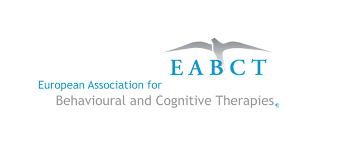



Cognitive Behavioural Psychotherapy (CBT)
Who can offer CBT?
- CBT therapy is practiced after Post-Graduate University (Diploma) level training. To gain accreditation with the BABCP, CBT therapists need to have a core professional training and be able to demonstrate commitment to the practice of CBT for at least 50% of their time. Accredited therapists have completed specialist CBT training and have supervised experience of practicing CBT. They abide to a code of practice, engage in continuum professional development and receive regular clinical supervision. Accreditation is renewable every five years. Christina is an accrediatated CBT therapist.
- Clinical/Counselling Psychologists, Psychotherapists and/or Counsellors may, but are not automatically fully trained or experienced in the delivery of CBT.
- Accreditation by the BABCP demonstrates that the therapist has been thoroughly vetted, and guarantees a commitment to the practice of CBT, to regular and relevant professional development and to abiding to a code of ethics and practice, which ultimately protects the client.
What is CBT?
- It is a way of talking about yourself, the world and other people.
- How what you do affects your thoughts and feelings.
- CBT can help you change how you think (Cognitive) and what you do (Behavioural). These changes can help you to feel better. Unlike some other types of treatment, CBT focuses on the 'here and now' problems and difficulties.
What types of difficulties can CBT help with?
- Depression
- Anxiety
- Phobias
- Panic Disorder
- Obsessive compulsive disorder (OCD)
- Post-traumatic stress disorder (PTSD)
- Eating Disorders
- Agoraphobia
- Social anxiety disorder
- Relationship problems
- ADHD/ADD
Eating Disorders

Eating Disorders can affect anyone:
People who suffer from an Eating Disorder worry about everything that they eat so much that it can control their life. It can stop them making realistic decisions about what they eat and how much they should eat.
People can develop Eating Disorders for a number of reasons, these include......
Psychological - Low self esteem, Depression, Anxiety, Loneliness, Anger, General dissatisfaction with life.
Interpersonal - Troubled family or personal relationships, History of sexual or physical abuse, Difficulty expressing emotions or feelings.
Social - Cultural norms that value people for their physical appearance, Media influence.
If they go undetected, eating disorders can cause real health problems as they stop the body getting all the essential energy and nutrients it needs to function properly. Remember that all sufferers of an Eating Disorder will not always have the same symptoms as someone else who has the same problem.
Anorexia
Sufferers of Anorexia Nervosa severely reduce the amount of food they eat due to fear of gaining weight. Some sufferers can eat nothing or fast for a number of days. people who have had the condition for a long time can lose a lot of weight and view their body size as being larger than their actual size. In severe cases, people can die from the effects of anorexia as normal functioning of the body is disturbed, especially if they do not seek help.
Bulimia Nervosa
Bulimia Nervosa is different from Anorexia, as sufferers experience a lack of control in their eating habits and tend to eat large amounts of food in a short space of time. Inappropriate compensatory behaviours, such as self-induced vomiting, laxatives or excessive exercise are then used to prevent weight gain. This can happen from several times a day to every few months.
Binge Eating
You may think that all eating disorders cause extreme weight loss, but people who have a Binge Eating Disorder can gain large amounts of weight because they binge on food during the day or continue to eat when they are not actually hungry. Binge Eating is usually in response to negative moods. Binge eaters can become obese and can develop problems with their heart, blood pressure and general level of fitness.
Allergies
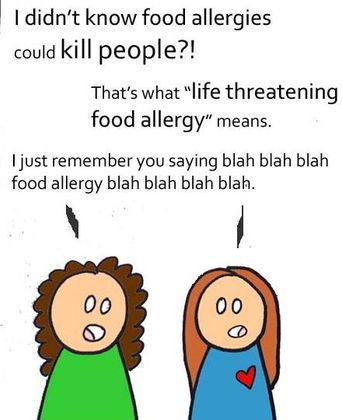
Christina Raeburn has been a counsellor involved with The Anaphylaxis Campaign since 2000. Her own private practice (CFA) was established in 1997 and has allowed Christina to pursue a particular interest in working with parents, teenagers and young children with severe allergies and the life challenges it brings. Although Christina's professional experience of allergy is extensive, she also has personal experience having a nut and sesame allergy herself. She is able to provide counselling and advice to those who feel their life is being affected by their allergy.
Anaphylaxis Campaign
Since 2000 Christina has been involved with the campaign, firstly facilitating the running of workshops across the UK and Ireland for children and teenagers with severe allergies. And for the last few years she has provided counselling and advice to families and individuals whose lives have been affected by allergy.
The Anaphylaxis Campaign is the only UK charity to exclusively meet the needs of the growing numbers of people at risk from severe allergic reactions (anaphylaxis) by providing information and support relating to foods and other triggers such as latex, drugs and insect stings. The Campaign provides tailored services for individual and clinical professional members for just £17 a year and also has a corporate membership programme. The AllergyWise online training programmes, developed by the Campaign, provide information and support for families, carers and individuals as well as for health professionals.
For more information contact www.anaphylaxis.org.uk
Testimonials
Absolutely first rate professional advice and support. Christina takes time to listen thoroughly to the needs of clients, responding sensitively and with an astute understanding of the issues raised and what practical steps can be taken to move forward. I can't recommend her services highly enough. Catherine, Edinburgh
Excellent session - Christina is a good listener and is always positive in feed-back. Lyn, Edinburgh
Christina provides a safe space to open up, with a perfect balance of active listening, thought provoking questions and feedback/observations to help me move forward. Jane, Edinburgh
Excellent session as usual. I can thoroughly recommend Christina as an ADHD therapist. John, Roxburghshire
Over a number of years, I have struggled to find the right therapist for me until I was referred to Christina. She has been super patient, great at listening and providing the recommendations to help me progress. Really helps to pinpoint elements which could be worked on to resolve a number emotions and situations. I would highly recommend her to anyone. Christina, Fife
Christina is excellent! She’s very knowledgeable, a good listener and very understanding. I would definitely recommend her. Susan, Edinburgh
Christina has helped me through many different challenges. As well as listening she also asks the right questions to usher me towards the realisations I need to help me move forwards positively. Jilly, Dundee
Christina is excellent, she is a good listener and very understanding providing professional advice and support with practical guidance steps. Highly recommend Christina. Paulina, West Lothian
Face-to-face sessions
It is no longer possible to have a face-to-face session. This is due to private hospitals no longer having the capacity for a psychotherapy service.
Remote sessions
During the pandemic I only offered support via FaceTime and Skype or telephone. Even though face to face contact is now allowed, I have continued to offer this service as it has been so effective.
I have been able to see more clients as there is less travel time which means I can see patients who live in various geographical locations. Patients have also told me they love the flexibility around work, school and other commitments.
There is also loads of evidence emerging about how remote therapy is just as effective as face to face therapy. This is an up and coming area of therapy research.
Reports and patients notes
Patient notes are the property of Counselling For All and can only be released for legal requests with a court order. If information is required by a patient, a chargeable report can be provided. Please note that patient records are only kept for 3 years unless there is a legal request for them to be held for longer.

Registration
Please follow the link below to register as a new patient.
https://eu.jotform.com/assign/210904110774043/210984827053056
